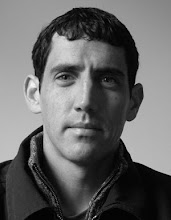
I've started Aristotle's Poetics, the Penguin Classics version. I'm only into the intro by Malcolm Heath, but it's already fascinating. The first thing that caught my attention in a big way was Heath's discussion of the primacy that Aristotle assigns to plot -- as contrasted with character. The argument at its most basic goes something like this: even if we know nothing about the character, we can imagine what a normal person would do in a given situation; thus a story, at it's simplest, can do without a complex character, but not without a series of connected actions (i.e., plot). "Do" here is key, as Aristotle sees action as the core of a story.
The most interesting part is Heath's caution that Aristotle's discussions of plot focus on the underlying sequence of events in a story. "The reader," he writes, "should be careful not to forget the level of abstraction at which Aristotle is working throughout the chapters on plot: he is not concerned here with the construction of the verbal artefacts (his spelling) which are tragedies, but with the design of the patterns of events which underlie them."
He makes the distinction again here: "Aristotle is often quoted as if he had said that a play has a beginning, a middle and an end. This is wrong. It is the plot, the underlying sequence of actions, that has this structure."
I've come across this distinction before -- most recently reading Gerrard Genette -- is important, because the "artefact" often mixes up the time, beginning at the end of a story then flashing back to the beginning then coming back to the end again. In some cases, the story focuses only on the moment of crisis in a story.
I'm thinking of Hemingway's Hills Like White Elephants. The couple has spent quite a while together and Hemingway's account could have begun before they met, showed them meeting, the discovery that the woman is pregnant, and the scene on the train platform where they heatedly discuss her getting an abortion. But Hemingway only shows the scene on the platform -- though he very cleverly alludes to the larger story with these two lines: "He did not say anything but looked at the bags against the wall of the station. There were labels on them from all the hotels where they had spent nights."



